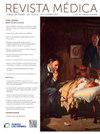Integridad académica desde la perspectiva de los estudiantes de primer año de carreras de Ciencias de la Salud de una universidad chilena
IF 0.4
Q4 MEDICINE, GENERAL & INTERNAL
引用次数: 0
Abstract
Introduction
This study aimed to examine perceptions of academic integrity among first-year health career students at a Chilean university.
Method
A qualitative analysis was conducted using discussion forums with students from Medicine, Nursing, Kinesiology, and Nutrition and Dietetics.
Results
Four main categories were identified: concept of academic integrity, motives for the loss of integrity, good practices, and relationship with the graduate profile. The results reveal an understanding of academic integrity that is grounded in values such as honesty and respect. The reasons for the loss of integrity include academic and social pressures, along with concerns about well-being and mental health.
Good practices were identified at personal as well as academic and social levels, emphasizing the importance of the construction of the “being”, setting boundaries, and promoting participation in positive social groups. The relationship between academic integrity and graduate profiles is underscored in its relevance to professional training and the construction of an institutional ethical identity.
Overall, these findings highlight the need to promote strategies that cultivate a university culture committed to academic integrity.
从智利一所大学健康科学学位一年级学生的角度看学术诚信问题
引言本研究旨在考察智利一所大学一年级健康职业学生对学术诚信的看法。方法通过与来自医学、护理学、运动学以及营养与饮食学的学生进行讨论,对其进行了定性分析。结果确定了四个主要类别:学术诚信的概念、丧失诚信的动机、良好做法以及与毕业生档案的关系。研究结果表明,对学术诚信的理解以诚实和尊重等价值观为基础。丧失诚信的原因包括学业和社会压力,以及对幸福和心理健康的担忧。在个人、学业和社会层面都发现了良好做法,强调了 "存在 "的构建、设定界限和促进参与积极的社会团体的重要性。总之,这些研究结果突出表明,有必要推广培养学术诚信大学文化的战略。
本文章由计算机程序翻译,如有差异,请以英文原文为准。
求助全文
约1分钟内获得全文
求助全文
来源期刊

Revista Medica Clinica Las Condes
MEDICINE, GENERAL & INTERNAL-
CiteScore
0.80
自引率
0.00%
发文量
65
审稿时长
81 days
 求助内容:
求助内容: 应助结果提醒方式:
应助结果提醒方式:


